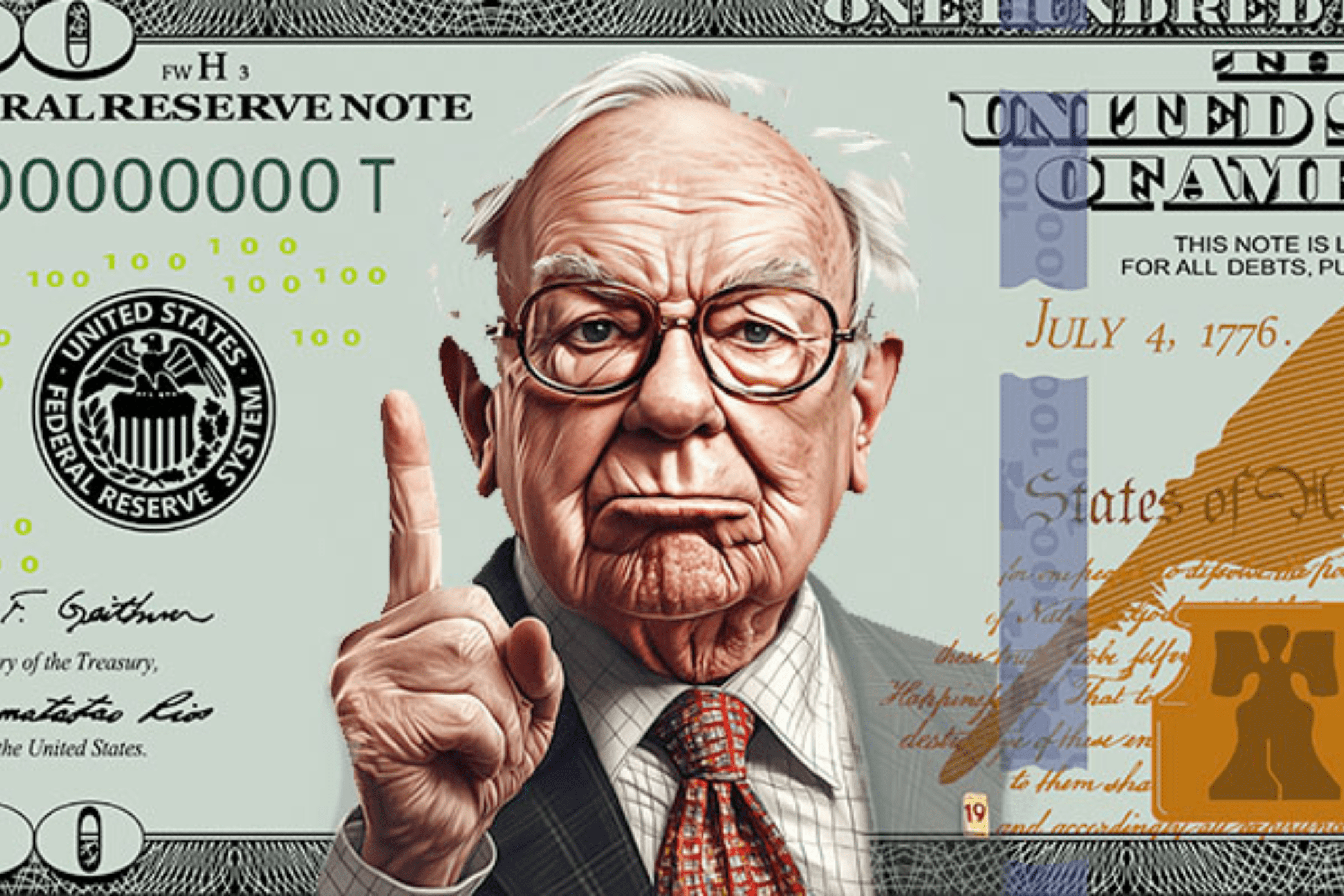His actions likely hint at a certain level of caution toward today’s market.
Warren Buffett, one of the world’s most admired and influential investors, has been selling off sizable portions of Berkshire Hathaway’s stock portfolio, leaving market participants speculating about his next move. Over the past few quarters, Buffett’s firm has sold holdings in some of its biggest names, including Apple (AAPL) and Bank of America (BAC), stopped buying back its own shares, and increased its cash reserves to an eye-popping $320 billion, significantly more than its $272 billion in equity investments. This shift has raised questions: Is Buffett signaling a market top? Is he preparing for a future downturn, or is this simply a strategic pivot?
Buffett’s Relationship with Apple
Among the sales making headlines, Buffett’s decision to reduce Berkshire’s position in Apple has caused the greatest stir. Apple, the single largest stock holding in Berkshire’s portfolio, is often regarded as one of Buffett’s most cherished investments. In fact, he emphasized his ongoing admiration for the company at Berkshire’s annual meeting in May, stating that Apple remains the “Apple of his eye.” Buffett pointed to concerns over the capital gains tax rate as a partial reason for the recent trimming of the Apple stake, suggesting that it might be wiser to sell some shares now rather than face higher taxes on gains in the future.
Apple CEO Tim Cook, who attended the meeting, underscored the mutual respect between Apple and Berkshire.
The sale, however, has stirred questions over whether this signals concerns about Apple’s valuation, especially as many analysts argue that large-cap tech stocks, including Apple, are trading at historically high multiples.
A Strategic Move With Bank of America?
Berkshire Hathaway’s decision to reduce its stake in Bank of America tells a similar story. As one of Berkshire’s largest holdings, trimming BAC shares helps keep Berkshire’s ownership below the regulatory threshold that triggers additional disclosures—a move that allows Berkshire greater flexibility to maneuver. Regulatory obligations can sometimes push large investors like Berkshire to trim their holdings even when they are fundamentally sound investments.
Calling a Market Top?
One explanation for Buffett’s recent sell-offs is that he may be calling a market top. Wall Street strategist Nicholas Colas observed, “Buffett sees stocks as overvalued, including his own, and therefore susceptible to a deep correction or outright bear market.” By paring down his equity holdings and stopping buybacks, Buffett might be signaling his belief that valuations are stretched, leaving little room for error if economic conditions deteriorate.
Berkshire’s cessation of stock buybacks in the most recent quarter is also telling. After repurchasing nearly $3 billion of BRK.B stock in the first half of the year, Berkshire halted buybacks entirely in the latest quarter, suggesting caution. This shift in behavior is unusual for an investor typically brimming with confidence in the resilience of his own company’s shares.
Hoarding Cash – A “Greedy” Strategy?
Buffett’s decision to amass a staggering $320 billion in cash is a classic strategy of his: be greedy when others are fearful. Holding this vast war chest could allow Berkshire to capitalize on market dips, scooping up assets at bargain prices. With many market watchers concerned about rising interest rates, inflation, and a potential economic slowdown, Buffett’s cash reserve positions Berkshire to take advantage of opportunities in a future downturn.
Cash provides flexibility. If markets see a prolonged decline, Berkshire will be well-prepared to acquire undervalued assets. Buffett’s conservative stance is particularly interesting given Berkshire’s long-held reputation for being a value investor. His recent moves could be seen as a hedge against current market conditions, with Buffett eyeing a future of distressed asset sales, where he can apply Berkshire’s capital at favorable terms.
What’s Next for Berkshire?
Investors eagerly await Berkshire Hathaway’s upcoming 13F filing with the Securities and Exchange Commission on November 14, which will shed further light on the full extent of Berkshire’s portfolio changes. So far, we know that Berkshire was a net seller of equities to the tune of $36 billion in Q3, signaling Buffett’s careful and perhaps cautious approach to current market conditions.
Final Thoughts: Reading Between the Lines
While Buffett hasn’t publicly commented on his reasons for selling, his actions hint at a certain level of caution toward today’s market environment. Selling off large portions of Berkshire’s equity holdings and halting buybacks indicate that the Oracle of Omaha is perhaps less confident in equity prices than in the past. As always, Buffett’s moves are calculated, and he could be positioning Berkshire to make significant plays in the event of a downturn, continuing his legacy of seizing opportunities when they’re least expected.
Only time will tell if Buffett’s cautionary approach will pay off, but one thing is certain: Berkshire is in a prime position to pounce when market opportunities arise, proving once again why Buffett is regarded as one of the savviest investors in history.
How Heritage Financial Planning Can Help
Warren Buffett’s recent strategies reflect a deliberate and calculated approach to managing market uncertainty—principles that align with our proprietary HFP S.T.A.R. Strategy process. Just as Buffett’s moves are guided by preparation and adaptability, our financial planning philosophy emphasizes personalized, proactive steps to help you achieve your financial goals. If you’re ready to navigate today’s complex market with confidence and clarity, contact our office today to schedule an appointment. Together, we’ll create a roadmap tailored to your unique needs and aspirations.

Click here to learn more about our HFP STAR Strategy process.
Source: Copyright © 2024 FMeX. All rights reserved. Distributed by Financial Media Exchange.











